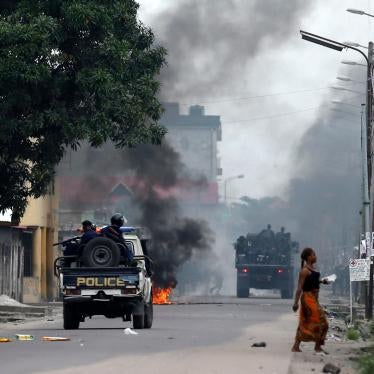Human Rights Watch today urged the United States to support a United Nations chemical weapons inspection in Sudan.
In a letter to President Clinton released today, the executive director of Human Rights Watch, Kenneth Roth, noted that questions persist about the Khartoum pharmaceutical factory bombed by the United States on August 20 — whether the factory stored or manufactured a precursor of nerve gas. Roth urged the U.S. government not only to support a search of the factory for signs of the production or storage of chemicals related to nerve agents, but also to use this opportunity to broaden the scope of a chemical weapons inspection to other sites in Sudan.
Roth also asked the U.S. to disclose information it used to determine if the factory was an appropriate military target. "Did the U.S. really do everything it could to determine that this factory was a legitimate military target?" said Roth. "Unless they start declassifying some of that information, doubts will persist." Roth noted that under U.S. law, a legitimate military target must be shown to be serving a military purpose at the time of the attack. The soil sample cited by U.S. government officials showed only that Empta had been present months before the attack.
The human rights organization asked that the U.S. compensate the civilians injured and the relatives of the person killed in the attack. Such compensation can be made without any concession that the U.S. acted improperly.
Roth noted that the U.S. government would be acting inconsistently if it supported chemical weapons inspections in Iraq, but not Sudan.
Sudan's foreign minister, Mustafa Osman Ismail, told a representative from Human Rights Watch in 1997 that Khartoum would not oppose such an inspection.






